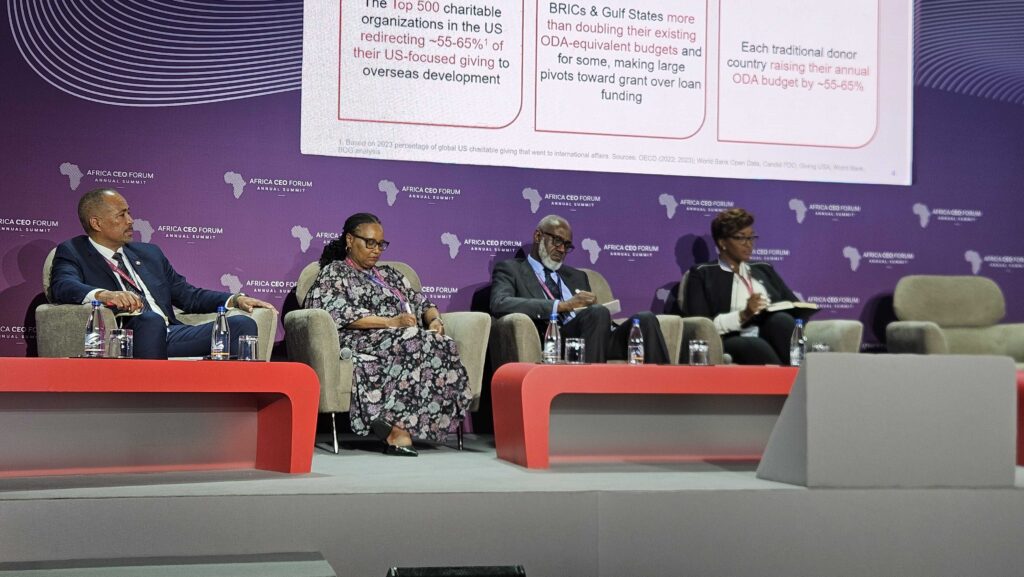At the African CEO Forum, sector leaders discuss reality amidst shifting global aid landscape
The 12th annual Africa CEO Forum underscored the pressing need for innovative solutions in the face of shifting global aid landscapes. As major funders of…

The 12th annual Africa CEO Forum underscored the pressing need for innovative solutions in the face of shifting global aid landscapes. As major funders of traditional aid reconfigure their partnerships with African nations, the forum provided a critical platform for leaders to discuss the future of development financing. This unique convening of influential African leaders from the private, philanthropic, and public sectors offers valuable insights into the continent’s economic and developmental trajectory.
The forum’s focus on private sector growth, regional integration, and innovation highlights the importance of collaborative approaches to drive sustainable development. The END Fund participated in a panel discussion titled “End of aid? How can local financing and philanthropy fill the void?” alongside the Africa Philanthropy Forum, IHS Cote d’Ivoire, and a representative of the African Development Bank.
According to Mills Schneck, Managing Director and Senior Partner at BCG, the reduction in official development assistance (ODA) is estimated to be between $41 billion and $60 billion. This decline necessitates a paradigm shift in development financing, moving away from reliance on grant funding and towards more sustainable and collaborative models.
Dr. Gbenga Oyebode, Chair of the African Philanthropy Forum, emphasized the importance of collaboration between donors and local African organizations to identify effective areas for intervention and optimize resource allocation.
Dr. Solomon Zewdu, CEO of the END Fund, reflected on the impact of abrupt foreign aid cuts, citing the 2021 UK aid budget reduction as a precedent. He highlighted the value of collaborative funding models, such as the END Fund’s, which leverages partnerships with global philanthropists and private-sector investors to close the funding gap for neglected tropical diseases (NTDs). Dr. Zewdu emphasized that sustainable progress requires forging partnerships that align local leadership with global capital intended to be catalytic and to de-risk long term country resource allocation, enabling philanthropic investments to work synergistically with domestic resources to solve local health issues.
The forum’s message was clear: solving global health problems, including ending NTDs, requires a redesign of systems to prioritize resilience, equity, and African-led solutions. Mr. Fatim Cisse, CEO of IHS Cote d’Ivoire, showcased the impact of local support for NTD programs, highlighting the partnership between IHS Towers and the END Fund in Nigeria. This collaboration demonstrates the potential for African companies and expert partners to drive lasting change and underscores the importance of local leadership in addressing global health challenges.
Ms. Swazi Tshabalala, Candidate for the Presidency of Africa Development Bank Group, also added that Africa needs to do development differently. She highlighted the importance of focusing on the sustainable development of the continent to achieve growth and reduce poverty. This has to be done collaboratively, with the private sector, multilateral development banks, and the government working in tandem to ensure that all efforts are leveraged for the greatest impact, according to Ms. Swazi Tshabalala.

